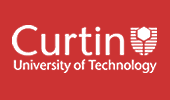
308958 v.1 Master of Health Economics (Aboriginal Health)MHlthEcon(AbHlth) (Curtin) This course is not available to International Onshore Students on Student Visas IntroductionDesigned for those seeking an understanding of health economics as it is which can be applied to the Aboriginal and Torres Strait Islander, hereafter Aboriginal health economics. It involves a research treatise in which students indicate their ability toapply the ideas and techniques of health economics learned on the Graduate Certificate and Graduate Diploma (Specialising in Aboriginal health). Students can choose to study any conceptual or empirical issue in Aboriginal health once this is agreed by theCourse Director. Recognition of Prior LearningApplications for recognition of prior learning are assessed on an individual basis. Duration and AvailabilityThe course is one semester full-time or equivalent part-time study. Available on-line. Students can progress at different paces. Intermediate AwardsIn exceptional circumstances a student who has successfuly completed all the requirements for the Graduate Diploma in Health Economics (Aboriginal Health) may apply for graduation with that award subject to approval by the Head of Department. For furtherdefinition refer to the Statement and Awards section under the General Information section in the Curtin Courses Handbook. Course OrganisationRepresents a more advanced level course than the Graduate Diploma of Health Economics (specialising in Aboriginal health). It involves a research treatise in Aboriginal health economics. This is supervised by the Course Director or a tutor with the relevant skills and knowledge. It can cover any economic issue relevant to the current state of Aboriginal health. This can be conceptual or practical but will normally be some mixture. The purpose of the treatise is to show that the student can use the learning he or she has acquired on the earlier Graduate Certificate and Graduate Diploma courses on Aboriginal health economics. There is no set length for the treatise. In terms of quality, however, it is best seen as being capable in some form or other of being publishable in an academic journal. Career OpportunitiesGraduates generally find employment with health service organisations both mainstream and Aboriginal, State and Commonwealth health departments, universities and research institutes. Additional Course ExpensesStudents may be expected to purchase a number of textbooks, readers and other vital study materials.
AvailabilityAvailability Information has not been provided by the respective School or Area. Prospective/current students should contact the School or Area listed above for further information. Click here for a printable version of this page |
 |
|||||||||||||||||||||||||||||||||||||||||||||||||||||||||||||||||||||||||||||||||||||||||||||||||||||||||||||